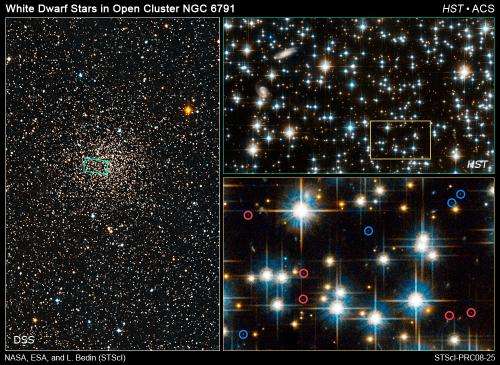Does light experience time?

Have you ever noticed that time flies when you're having fun? Well, not for light. In fact, photons don't experience any time at all. Here's a mind-bending concept that should shatter your brain into pieces.
As you might know, I co-host Astronomy Cast, and get to pick the brain of the brilliant astrophysicist Dr. Pamela Gay every week about whatever crazy thing I think of in the shower. We were talking about photons one week and she dropped a bombshell on my brain. Photons do not experience time. [SNARK: Are you worried they might get bored?]
Just think about that idea. From the perspective of a photon, there is no such thing as time. It's emitted, and might exist for hundreds of trillions of years, but for the photon, there's zero time elapsed between when it's emitted and when it's absorbed again. It doesn't experience distance either. [SNARK: Clearly, it didn't need to borrow my copy of GQ for the trip.]
Since photons can't think, we don't have to worry too much about their existential horror of experiencing neither time nor distance, but it tells us so much about how they're linked together. Through his Theory of Relativity, Einstein helped us understand how time and distance are connected.
Let's do a quick review. If we want to travel to some distant point in space, and we travel faster and faster, approaching the speed of light our clocks slow down relative to an observer back on Earth. And yet, we reach our destination more quickly than we would expect. Sure, our mass goes up and there are enormous amounts of energy required, but for this example, we'll just ignore all that.
If you could travel at a constant acceleration of 1 g, you could cross billions of light years in a single human generation. Of course, your friends back home would have experienced billions of years in your absence, but much like the mass increase and energy required, we won't worry about them.
The closer you get to light speed, the less time you experience and the shorter a distance you experience. You may recall that these numbers begin to approach zero. According to relativity, mass can never move through the Universe at light speed. Mass will increase to infinity, and the amount of energy required to move it any faster will also be infinite. But for light itself, which is already moving at light speed… You guessed it, the photons reach zero distance and zero time.
Photons can take hundreds of thousands of years to travel from the core of the Sun until they reach the surface and fly off into space. And yet, that final journey, that could take it billions of light years across space, was no different from jumping from atom to atom.
Source: Universe Today





















